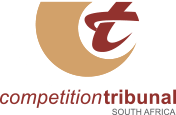1. Merger Alert: Outcome of mergers decided by the Tribunal - 4 February 2026
Type of matter
Large merger
Large merger
Parties involved
Stanlib Infrastructure Fund II, represented by Stanlib Infrastructure GP 2 (Pty) Ltd and Cassava Africa Data Centres SA (Pty) Ltd
Super Group Holdings (Pty) Ltd and DIG Earthmoving (Pty) Ltd, DIG Mining (Pty) Ltd, DIG Civils (Pty) Ltd and DIG Plant Hire (Pty) Ltd
Tribunal Decision
Approved without conditions
Approved without conditions
